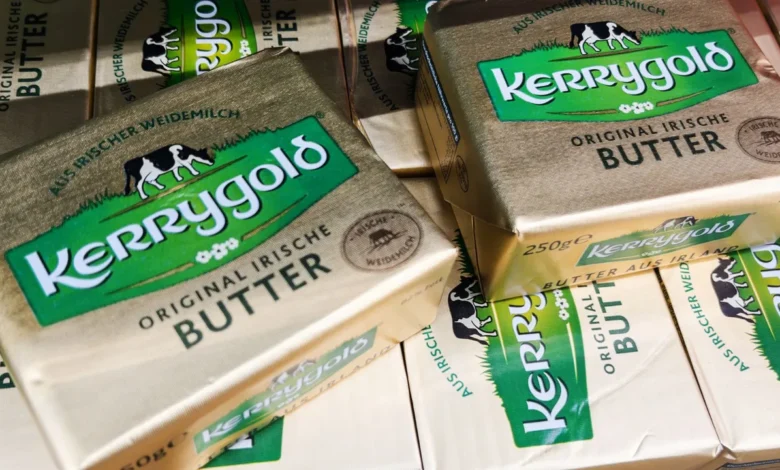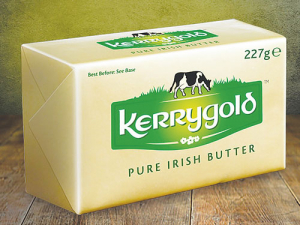Kerry Gold Butter Lawsuit: What You Need to Know About the Legal Controversy

Kerry gold Butter, famous for its golden hue and creamy richness, is under fire. The trusted brand that once symbolized purity and Irish quality is now at the center of a legal storm. The Kerry Gold Butter lawsuit has sparked widespread attention, raising serious questions about food labeling, marketing integrity, and what “natural” really means.
As more health-conscious shoppers demand clean ingredients, lawsuits like this one reveal the cracks in the food industry’s glossy surface. This case isn’t just about butter—it’s about truth, trust, and the future of what ends up on our plates.
Kerrygold’s Background and the Rise to Global Fame

Kerrygold isn’t just a butter brand—it’s a global symbol of Ireland’s lush pastures and ethical farming practices. Marketed as coming from grass-fed cows raised without synthetic hormones, Kerrygold has carved a niche in the premium dairy market. Consumers, drawn to the brand’s wholesome image, are often willing to pay more for what they believe is a cleaner product.
Over the years, Kerrygold has become a household name in the U.S., Europe, and beyond. With growing demand for natural and minimally processed food, the butter quickly became a favorite in health circles, gourmet kitchens, and influencer posts. But success also brought scrutiny. The Kerry Gold Butter lawsuit now threatens to unravel the very narrative that built the brand’s empire.
Inside the Lawsuit: Allegations and Legal Claims
The heart of the Kerry Gold Butter lawsuit revolves around claims of false advertising and deceptive labeling. Plaintiffs argue that the brand misrepresented its butter as being free of additives or artificial substances. They allege that Kerrygold’s packaging suggests a level of natural purity that may not be entirely accurate under strict U.S. labeling laws.
This legal battle highlights a key issue: many consumers interpret “natural” differently from how regulators or corporations define it. The lawsuit claims that by using these terms, Kerrygold charged a premium price while potentially misleading consumers. Whether intentional or not, these marketing choices have now led to public backlash and legal examination.
Kerrygold’s Defense and Public Response
In response to the Kerry Gold Butter lawsuit, Kerrygold’s parent company, Ornua, has firmly denied any wrongdoing. The company insists that its butter is made with the highest quality milk and adheres to all applicable food labeling regulations. Kerrygold maintains that its marketing reflects the product’s true Irish heritage and natural origins.
Supporters of the brand argue that Kerrygold’s grass-fed practices and farming standards are well-documented. However, critics say that transparency is key—and that any gaps between perception and reality need to be addressed. As the case unfolds, Kerrygold’s reputation hangs in the balance, along with consumer trust that has taken years to build.
Why This Lawsuit Matters for Shoppers and Brands

The Kerry Gold Butter lawsuit isn’t just about one company—it’s about consumer rights and the meaning behind food labels. Shoppers are more informed than ever, and they expect brands to match their marketing claims with actual practices. If this lawsuit succeeds, it could set a precedent for other food companies that blur the lines between image and reality.
This case also shines a spotlight on how terms like “natural,” “pure,” and “grass-fed” are used in advertising. Without clear regulatory definitions, brands can use these phrases freely—often leading to confusion or misplaced trust. For consumers, this lawsuit is a wake-up call to read beyond the label and understand what they’re really buying.
The Bigger Picture: Food Industry Accountability
What’s happening with the Kerry Gold Butter lawsuit is part of a larger shift in consumer expectations. More people are demanding transparency, sustainability, and authenticity from the brands they support. Food companies that fail to deliver on these values risk losing both credibility and market share.
Legal actions like this are becoming more common, especially as watchdog groups and consumer advocates turn their attention to misleading health claims. Kerry Gold Butter Lawsuit may not be the last major brand to face scrutiny. As food labeling laws tighten and public pressure mounts, companies will have to rethink how they market and manufacture their products.
Current Case Status and What’s Next
At the time of writing, the Kerry Gold Butter lawsuit is still in progress. Both sides are presenting their arguments, and it remains unclear whether a settlement will be reached or if the case will go to trial. What is certain, however, is that the outcome could ripple across the entire food industry.
Should Kerrygold be found liable, it may be required to alter its labeling practices, offer consumer compensation, or change its advertising language. Regardless of the verdict, the brand’s next steps will likely focus on rebuilding consumer trust and clarifying its commitments to product transparency.
Conclusion: The Butter Battle Worth Watching
The Kerry Gold Butter lawsuit underscores the power of consumer vigilance and the importance of truthful marketing. It serves as a reminder that even beloved brands must be held accountable. Whether or not Kerrygold is found guilty, the conversation around clean labeling and ethical branding is far from over.
As consumers, we all have a role to play in shaping the food system—by asking questions, reading labels, and holding brands to their word. The final verdict in this case may be months away, but its impact is already being felt across grocery aisles and corporate boardrooms alike.
Frequently Asked Questions
What is the Kerry Gold Butter lawsuit about?
The lawsuit accuses Kerry Gold Butter Lawsuit of misleading consumers through inaccurate or deceptive labeling, particularly regarding claims of being “natural” and additive-free.
Is Kerrygold Butter safe to consume?
Yes, the lawsuit is focused on labeling and marketing practices, not product safety or contamination.
Has Kerrygold responded to the lawsuit?
Yes, Kerrygold has denied the allegations and maintains that its labeling complies with all relevant food regulations.
Will there be compensation for consumers?
That will depend on whether the case leads to a settlement or a legal decision in favor of the plaintiffs.
What should consumers take away from this lawsuit?
The key lesson is the importance of transparency in food marketing and the need for shoppers to stay informed about what they’re buying.
You may also read:Rajgir Glass Bridge: Ticket Price, Timings, Location & Thrilling Experience Guide





